A post by
Nina Anika Klotz
freelance author
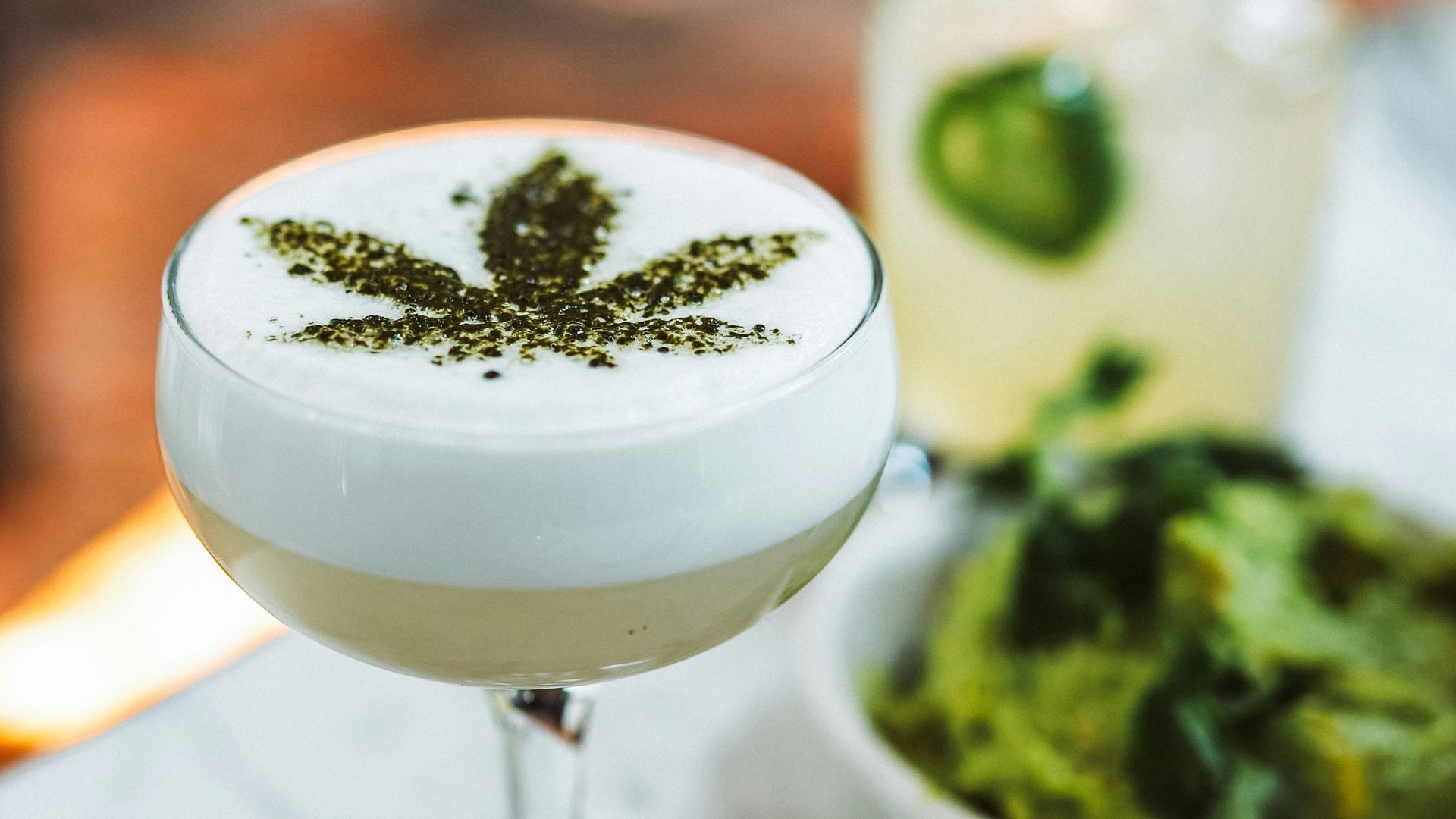
CBD – cannabidiol – has been floating around for some time now as presumably THE next trend in the beverage industry. Especially in the non-alcoholic drinks sector. No wonder, as everyone knows that the market is extremely competitive. And incredibly fast-moving. And then the next new thing comes along. High time to take a closer look.
Released on 05/07/2021Updated on 05/07/2024

A post by
Nina Anika Klotz
freelance author
However, the topic of CBD has a number of hurdles to overcome. Legal ones, first and foremost. Cannabidiol, or CBD for short, is extracted from the cannabis plant, and its cultivation and utilisation is more strictly regulated in Germany than in other countries.
In the EU, CBD foods fall under the Novel Food Regulation and therefore require special authorisation. Following a temporary halt to the authorisation of new foodstuffs containing CBD, the signs are currently green again. And following a judgement by the European Court of Justice, which clarified that CBD oil has no psychoactive effect and therefore does not fall under the Narcotics Act, the path for CBD is clear again.
Nevertheless, it still feels a bit forbidden – which is part of the appeal: drinks with or made from cannabis are a talking point, and attention is free. And many suppliers have not yet ventured into the unoccupied field.
An interesting move by Anheuser-Busch proves that there is drive in CBD. Back in 2018, the company signed a 100-million-dollar deal with Tilray, a pharmaceutical company from Canada and the world's largest producer of medical marijuana. According to AB-InBev, the aim is to jointly develop non-alcoholic beverages.
Tilray is now one of the largest cannabis companies in the world and, according to CNBC, has a market value of 1.79 billion US dollars. In August 2023, Tilray acquired craft beer and beverage brands, including production facilities and personnel, from Molson Coors and Anheuser-Busch to expand its portfolio in the beverage market. THC beverages are one of the fastest growing industries in North America. With the purchase of the beverage brands, Tilray says it has expanded its market share of cannabis beverages in Canada to around 36%.
Cannabis drinks also fit in with the zeitgeist. With certain ingredients, they can easily be positioned in the wellness drinks segment and thus correspond to the health awareness of younger customers in particular. Benefits, added value – that sells well and at good prices.
Ingredients of CBD drinks
CBD drinks do not get you high, even if some of them sometimes flirt with the allure of the forbidden and a certain romanticism. Tetrahydrocannabinol (THC), with its psychoactive effect, is responsible for the cosy, mellow, like-in-a-cloud, all-easy feeling after "conventional" cannabis consumption via a joint. CBD does not have such an effect, but can have a pain-relieving and anti-inflammatory effect.
There are scientific studies that also point to a certain effectiveness of CBD in combating anxiety or even depression. However, this should be seen independently of the possible intake via food and drink.
In other words, it is completely unclear how much CBD lemonade you would have to drink to feel less chronic back pain when working from home or even to overcome a depressive mood. This is also the reason why manufacturers of CBD drinks should be wary of making overly grandiose health claims. "CBD is somehow good for you" is what you could say.
CBD oil is readily available for this purpose and is usually obtained from the dried female flower of industrial hemp in various ways (by heating or distillation, using solvents such as ethanol or butane, supercritical carbon dioxide, alcohol or oil).
In Germany, CBD oil may contain a maximum of 0.2 per cent THC. Manufacturers are then allowed to use it in food and beverages and enrich water, lemonade, teas or even coffee or beer with CBD.
Alternatively, manufacturers can use the dried leaves of the cannabis plant, a type of hemp tea. Like Can Kalayci, head and founder of Creative Food and Beverage Company AG. He produces a hemp iced tea called Herbtie exclusively for a well-known Swiss retail chain. To make it, he brews dried hemp leaves together with green tea. This infusion is then diluted and mixed with lemon juice and a little cane sugar to create the refreshingly tangy final drink. "We source our hemp regionally," says Can Kalayci. Yes, Switzerland is extremely liberal when it comes to cannabis, the cultivation of the Cannabis Sativa L. variety is possible, and raw materials with a THC content of up to one per cent are permitted for further processing in food production.
In Germany, the regulations are stricter and the measurement limits tighter. However, this doesn't have to be a disadvantage for German producers, says Kevin Singh Witzorek, founder of the Hamburg-based drinks company Jamu. Following a small series of different, internationally inspired wellness drinks, he presented his organic cannabis drink at BIOFACH 2020 in Nuremberg. It quickly became a bestseller in his portfolio, with Witzorek even selling to the USA. This is despite the fact that the CBD content is well below what would be permitted there. But as we all know, it's less about quantity and more about quality.
"I like to compare it to a high-dose vitamin C tablet and an apple. Which do you think is better for you, for your body? The tablet, which may have ten times the amount of vitamin C – or the apple with its multitude of nutrients, vitamins and minerals?" In contrast to most international manufacturers, who primarily want to score points with the amount of CBD contained in their drinks and therefore work with CO2-based extracts, Witzorek and his team have developed their own extraction process, the details of which are secret, in which all the ingredients of the hemp plant are extracted and preserved. His organic cannabis drink contains not only CBD, but also various terpenes, trace elements and diverse cannabinoids that occur naturally in the plant. "Only all of these together can create the effect we want to achieve," says Witzorek. He refers to the scientifically proven "entourage effect", according to which it is the interaction of different ingredients that creates a positive effect.
Anyone who works with hemp infusions like Can Kalayci or Kevin Witzorek also gets the full cannabis flavour.
A unique flavour, tangy-sweet and quickly intense. "Hemp just tastes like hemp – and that's a good thing!" says Kevin Witzorek. "We don't add any sweeteners or flavourings. 42 per cent cannabis extract, turmeric, ginger, a little grape juice and some lemon juice plus carbon dioxide. That's all."
Many people know this, but it has not yet been mentioned: Cannabis is a close relative of hops. The same plant family. And this is not the only reason why it is almost obvious to link the CBD trend with the timeless topic of beer.
BRLO in Berlin was a pioneer in this regard and has already launched two CBD beers, "Legend has it" (Pilsner) and "Down" (a Double IPA). "As CBD is still not really legal as a foodstuff, we used an organic hemp tea from Brandenburg that has no THC but a high CBD content," explains Managing Director Dr Katharina Kurz. "We added this organic hemp tea to the hops during the dry hopping phase. The flavour definitely came through, it was super grassy."
And she sees further potential here: "Overall, I think that there is still a lot of potential in CBD, and we could imagine experimenting with more beverages."
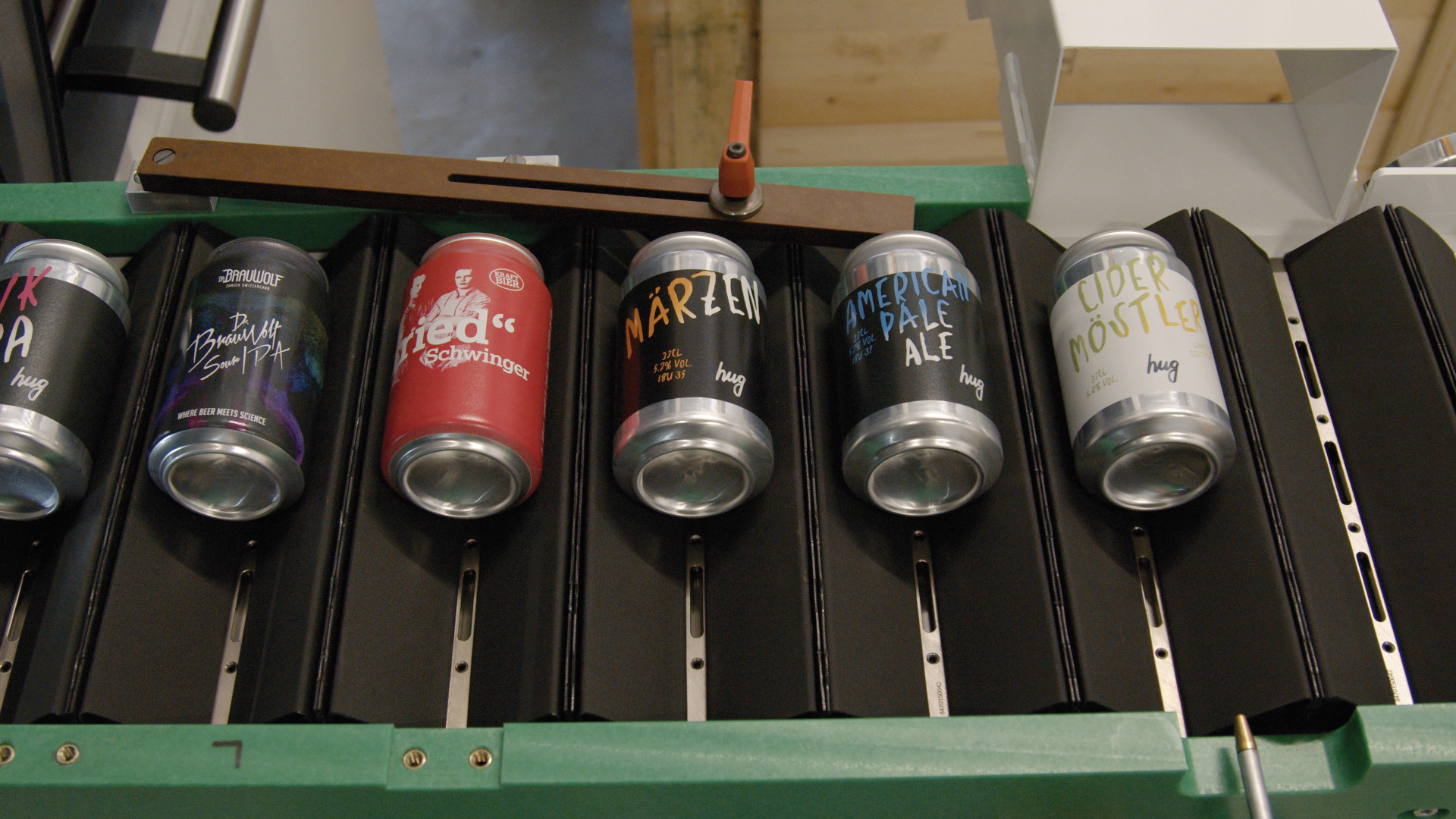
Lot size 1
A post by Patrick Schweizer
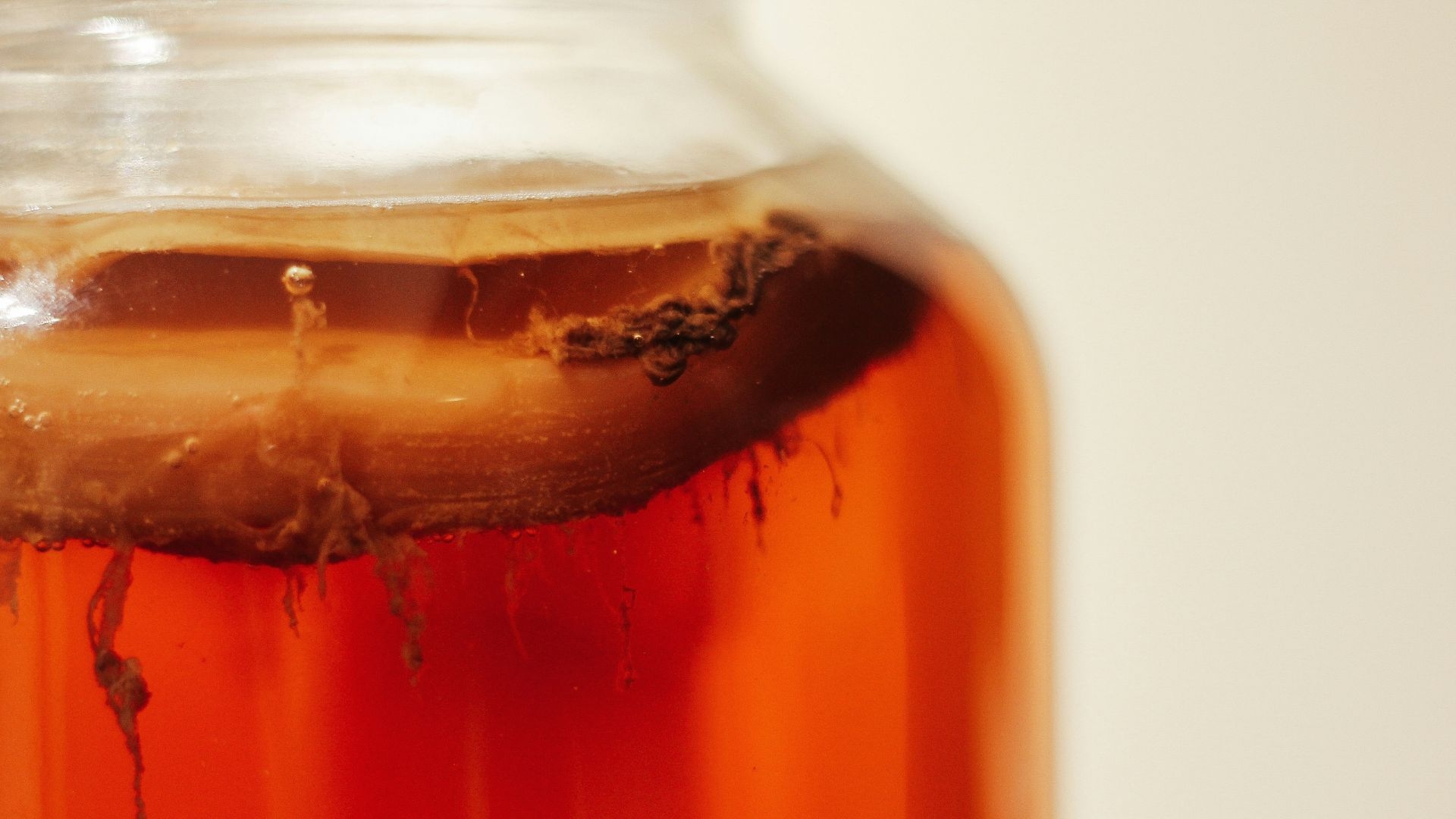
Trend drink
A post by Nina Anika Klotz
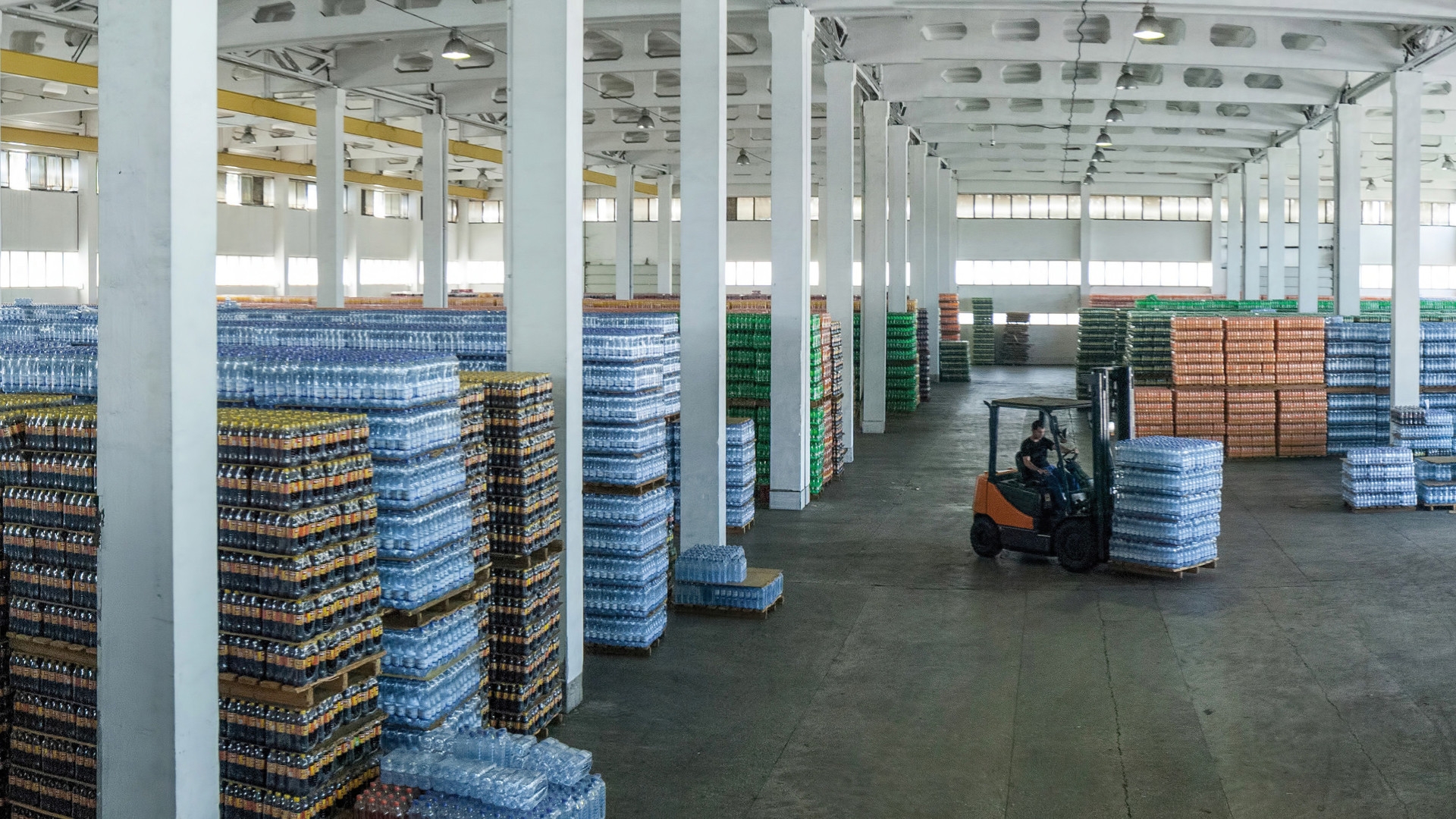
Automatisation
A post by Helmut Brunner
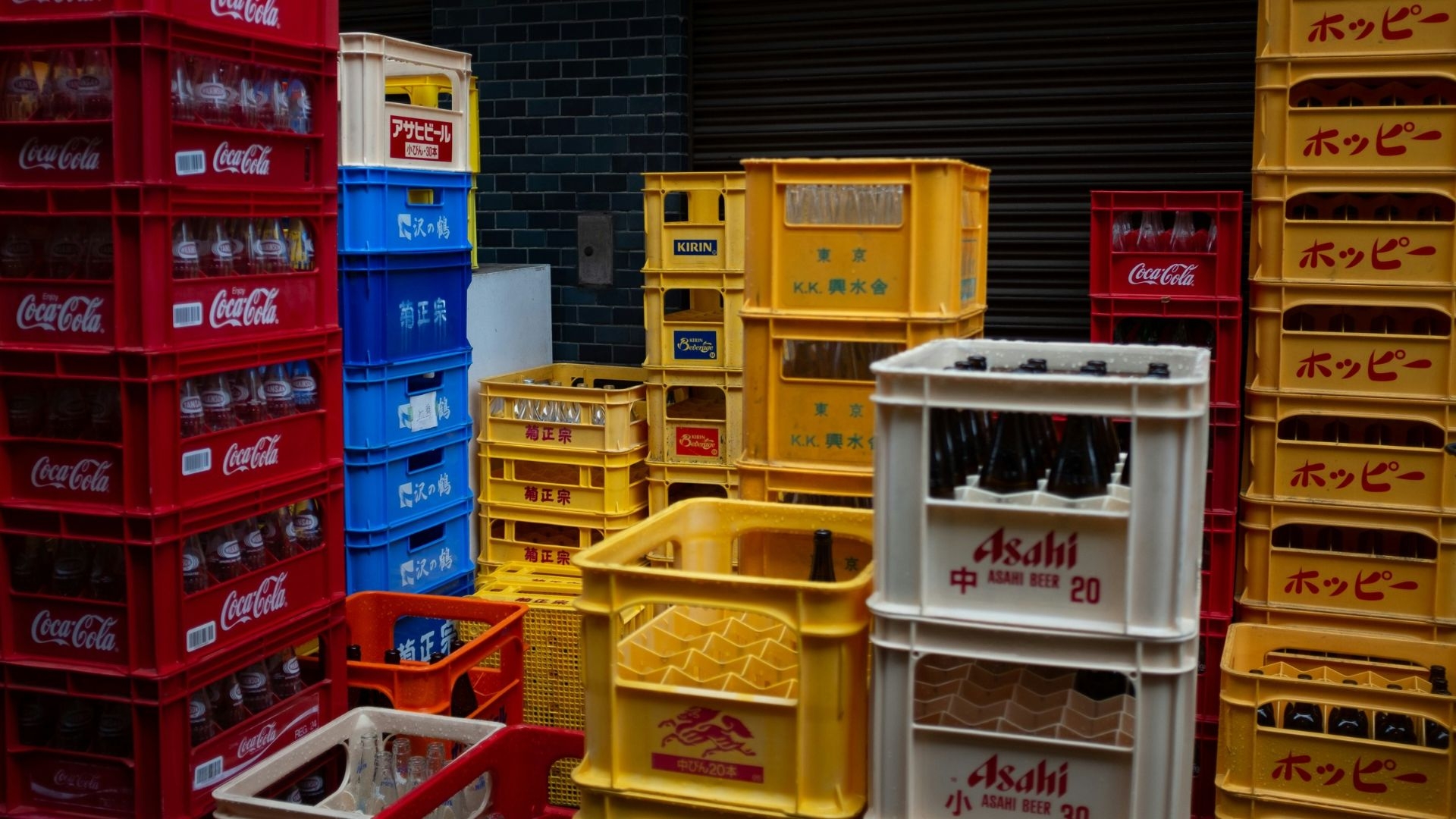
Leergutmanagement
A post by Ingo Pankoke